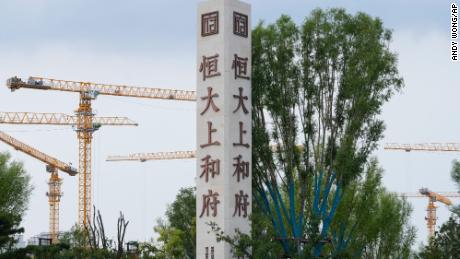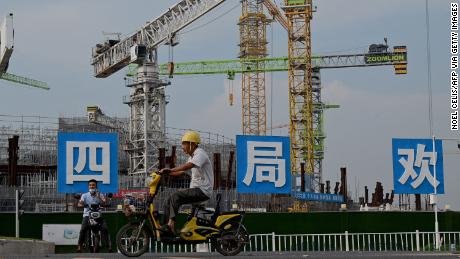Why global investors are focused on Evergrande

Hong Kong (CNN Business)Chinese Estates Holdings plans to go private after its stock was slammed by fallout from the crisis at Evergrande.
The Hong Kong developer had seen its shares plunge as much as 44% this year to their lowest level in nearly two decades as Evergrande teetered on the edge of collapse. Chinese Estates is the second largest shareholder in Evergrande after founder and chairman Xu Jiayin.
“Directors are cautious and concerned about the recent development of China Evergrande Group including certain disclosures made by China Evergrande Group on its liquidity,” Chinese Estates said in a filing to the stock exchange late Wednesday.
It offered to pay minority shareholders 1.91 billion Hong Kong dollars ($245 million) for their 25% stake and take the company private. The offer represented a premium of about 83% over the stock’s closing price on September 28, the last full day before it was suspended from trade.
Chinese Estates Holdings, controlled by Hong Kong billionaire Joseph Lau and his wife Chan Hoi-wan, has been a long-time ally of Evergrande. It has often offered financial support to the Chinese developer by subscribing to many of its bond or stock sales since 2009, when Evergrande listed in Hong Kong. It has also worked with Evergrande on property projects in mainland China.
By the end of last year, holdings of Evergrande bonds and stocks accounted for more than a third of Chinese Estates’ total assets, according to the company’s annual report. As Evergrande’s stock plunged amid an escalating debt crisis, Chinese Estates Holdings incurred huge losses on its investment.
On September 23, Chinese Estates Holdings said it had sold $32 million worth of Evergrande shares over the past three weeks. It also plans to offload its remaining stake. The company expects its total loss resulting from the disposals to be 10.4 billion Hong Kong dollars ($1.3 billion).
Going private can give a company more flexibility in thinking long term and meeting strategic goals, rather than being swayed by short-term market expectations. Shares in Chinese Estates Holdings soared 32% Thursday in Hong Kong as trading resumed following the announcement of the offer. They had been suspended since the morning of September 29.
Evergrande’s debt crisis has unsettled global investors in recent weeks, raising concerns about a potential domino effect on the broader Chinese economy and financial markets. Earlier this week, another Chinese developer Fantasia Holdings defaulted on its debt, as smaller players grapple with rising bond yields, funding dries up and property buyers turn more cautious.
The stress in China’s property sector has mounted since August 2020, when Beijing curbed excessive borrowing by developers to prevent the market from overheating.
Earlier this year, the Chinese government made clear that it would prioritize “common prosperity” in its policy goals and tame runaway home prices, which it has blamed for worsening income inequality and threatening economic and social stability.
Evergrande’s liquidity crisis has escalated in recent months. The company warned investors of its cash flow crisis in September, saying that it could default if it was unable to raise money quickly. In the past few weeks, it missed at least two bond interest payments.
Source: Read Full Article


